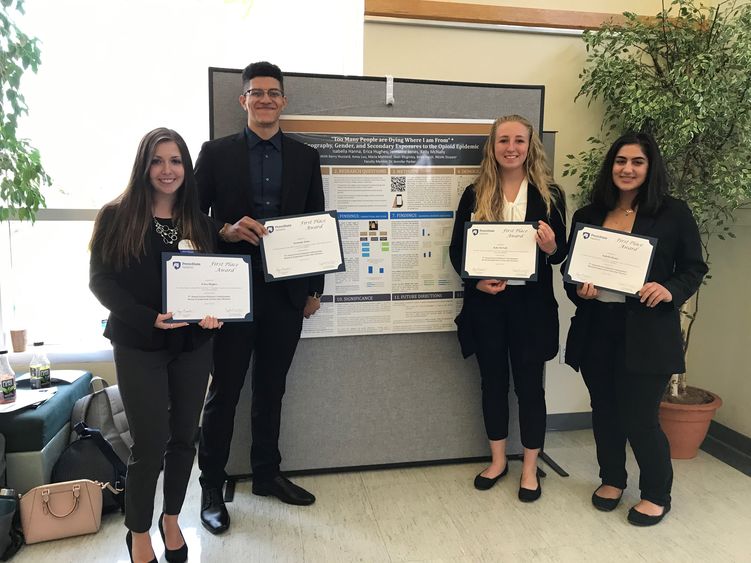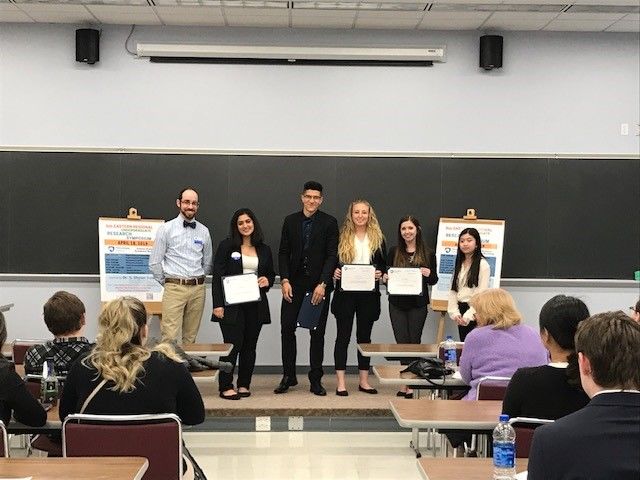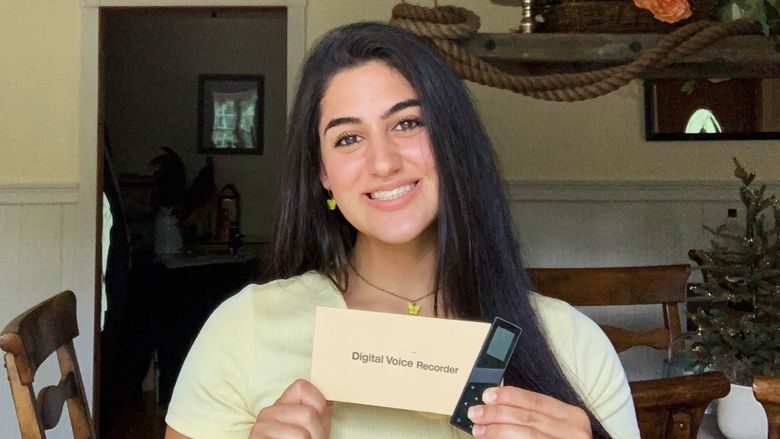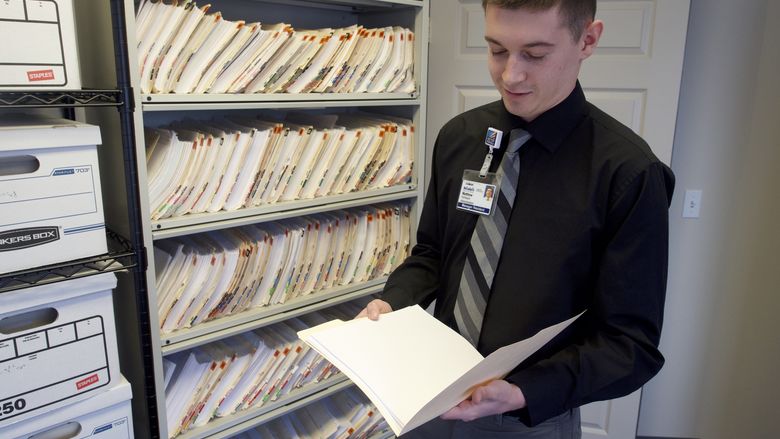
Four health policy and administration students, who were part of a larger group from Penn State Lehigh Valley, placed first out of 10 projects at the Eastern Regional Undergraduate Research Symposium held April 18 at Penn State Hazleton.
CENTER VALLEY, Pa. — Ten health policy and administration (HPA) students from Penn State Lehigh Valley participated in the Eastern Regional Undergraduate Research Symposium held April 18 at Penn State Hazleton, and placed first and second out of the ten projects in the Business and Social Sciences division.
Erica Hughes, class of 2019, was the coordinator for her group’s project, which included HPA majors Isabella Hanna, Kelly McNally, Jermaine Jones, Kerry Huzzard, Amia Luu, Maria Mahfoud, Brian Perch, Lauren Rhodes and Nicole Stopper, and biobehavioral health (BBH) major Sean Mcginley. The students won first place for the social sciences and business category.
Hughes had been at Penn State Lehigh Valley for four years and graduated in May.
“My experience at Penn State Lehigh Valley actually went really well. I ended up working in Career Services and was able to attend class while gaining professional experience,” Hughes said. “The environment at Penn State Lehigh Valley is great and there’s so many opportunities both educationally and professionally.”
The project, titled “Too Many People are Dying Where I am From,” explored the opioid epidemic in the United States. This study was the second round of a multi-year study focused on college students’ secondary exposures to the opioid epidemic that took place in a HPA class at Penn State Lehigh Valley.
“I utilized the survey data we collected in 2017 to revise and focus the survey on factors that have emerged in the two-year time frame,” Hughes said. “I also compared the two surveys to one another to highlight the changes we found within the two years.”
After conducting the study, the students found that an alarming rate of college students are exposed to people misusing pain medications or using heroin. Almost one in two students (46 percent) reported knowing of someone misusing pain medication or using heroin, and 42 percent knew of someone addicted to those substances.
“Despite a growing literature on the opioid crisis and its devastating effects on individuals and local communities, little is specifically known about the secondary exposures that young people, including college students, have to opioid misuse, including the emotional, physical and financial burdens that are experienced by knowing people who have a problem,” said Jennifer Parker, associate professor of sociology at Penn State Lehigh Valley.
Two students from this group were also part of another project that won second place in the same category.
Perch and Stopper worked on their project, titled “Atul Gawande’s Chance to Improve American Healthcare,” with Anita Yuskauskas, coordinator of the HPA program and assistant teaching professor at Penn State Lehigh Valley.
The case-study approach was used with undergraduate students in a health systems management course. Using this method, instructors and students learn together using entrepreneurial practices to solve a current problem. The method focused on student engagement in solving real problems inherent in the U.S healthcare system, by applying research and innovation.
In this case study, students were asked to act as consultants to Atul Gawande in his charge as the new CEO of the healthcare venture by Amazon, Berkshire-Hathaway and JP Morgan Chase. Gawande is heading up a new, independent nonprofit organization responsible for the healthcare of the three organizations' one million employees. This case encompasses the major problems in the healthcare industry covering Americans who receive insurance through employers.
“This topic is very current, and it is far-reaching in its content. Using this method, HPA students are learning to solve real-world problems,” Yuskauskas said. “They are taking on the role of consultants by analyzing current information to come up with solutions.”
“This topic is very current, and it is far-reaching in its content. Using this method, health policy and administration students are learning to solve real-world problems. They are taking on the role of consultants by analyzing current information to come up with solutions.”
—Anita Yuskauskas, coordinator of the HPA program and assistant teaching professor at Penn State Lehigh Valley
The success of these HPA students reflects the success of the degree at Penn State Lehigh Valley.
“The HPA degree at Penn State Lehigh Valley provides research opportunities of practical significance right in the classroom by incorporating a research model as a locus of learning,” Parker said. “The students this year not only rose to the high expectations set before them, they surpassed them by taking on leadership roles and initiating research paths that led to important new discoveries.”
Dennille Schuler
Public Relations Specialist
Penn State Lehigh Valley



